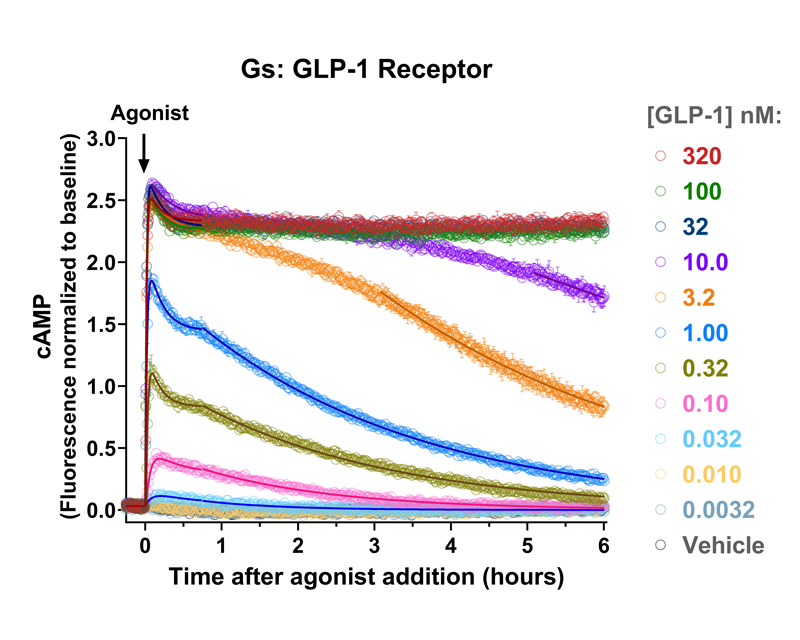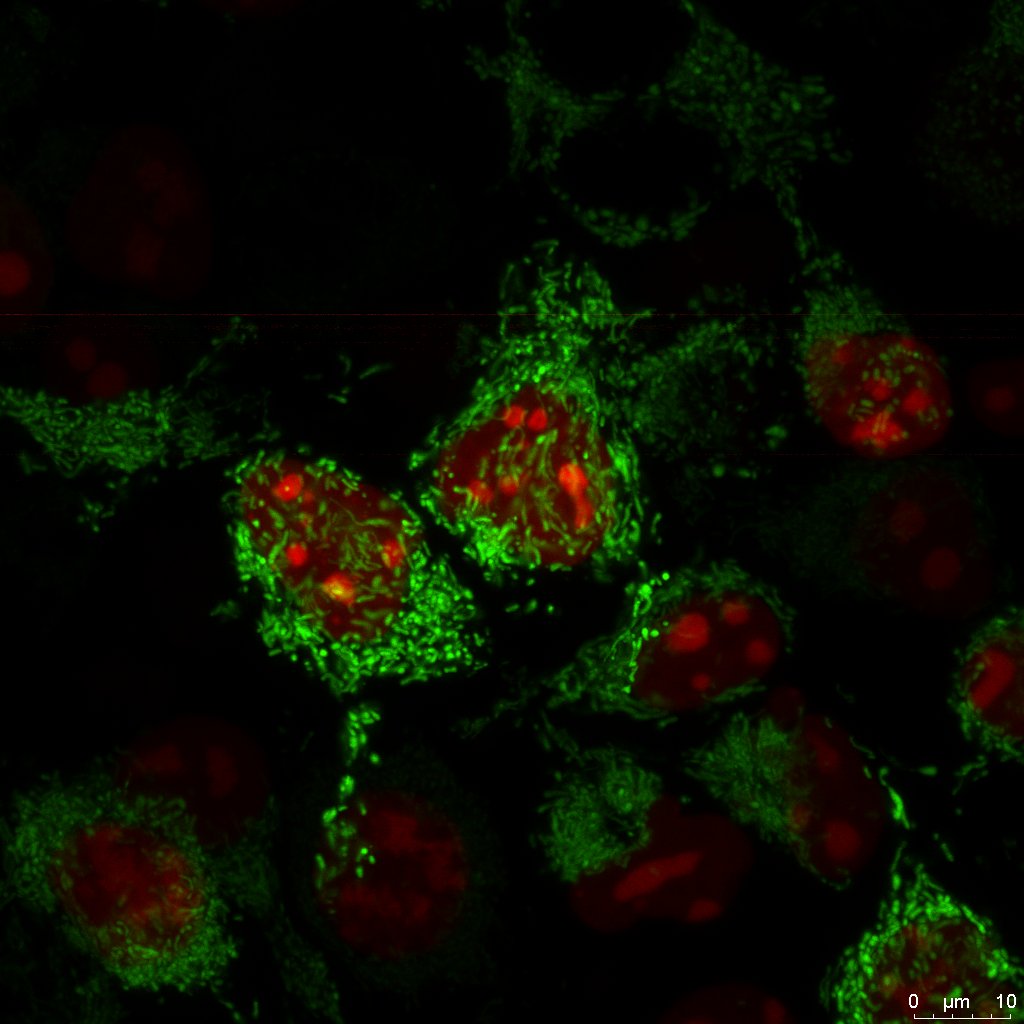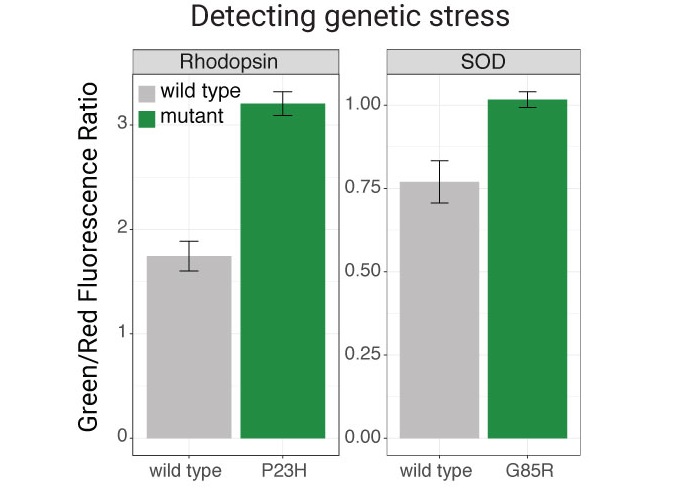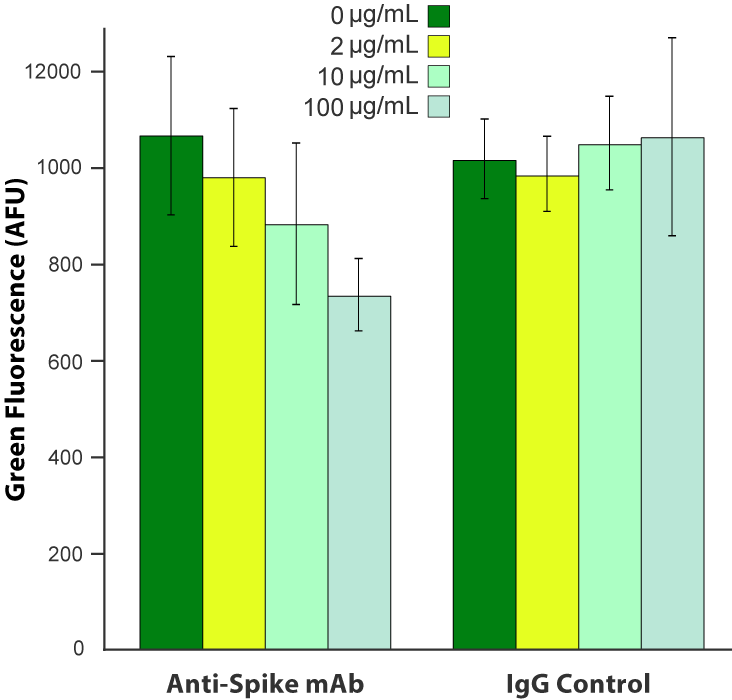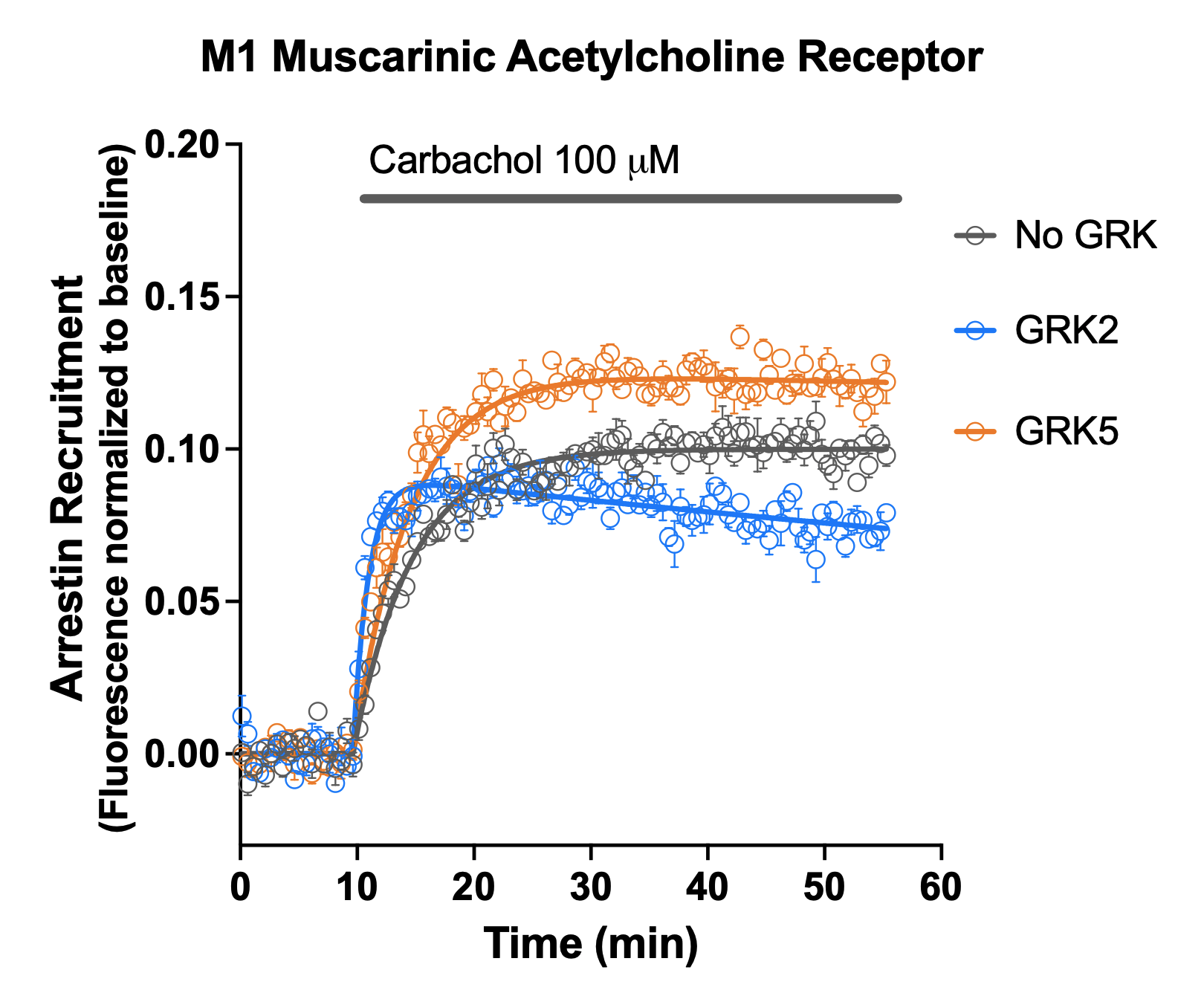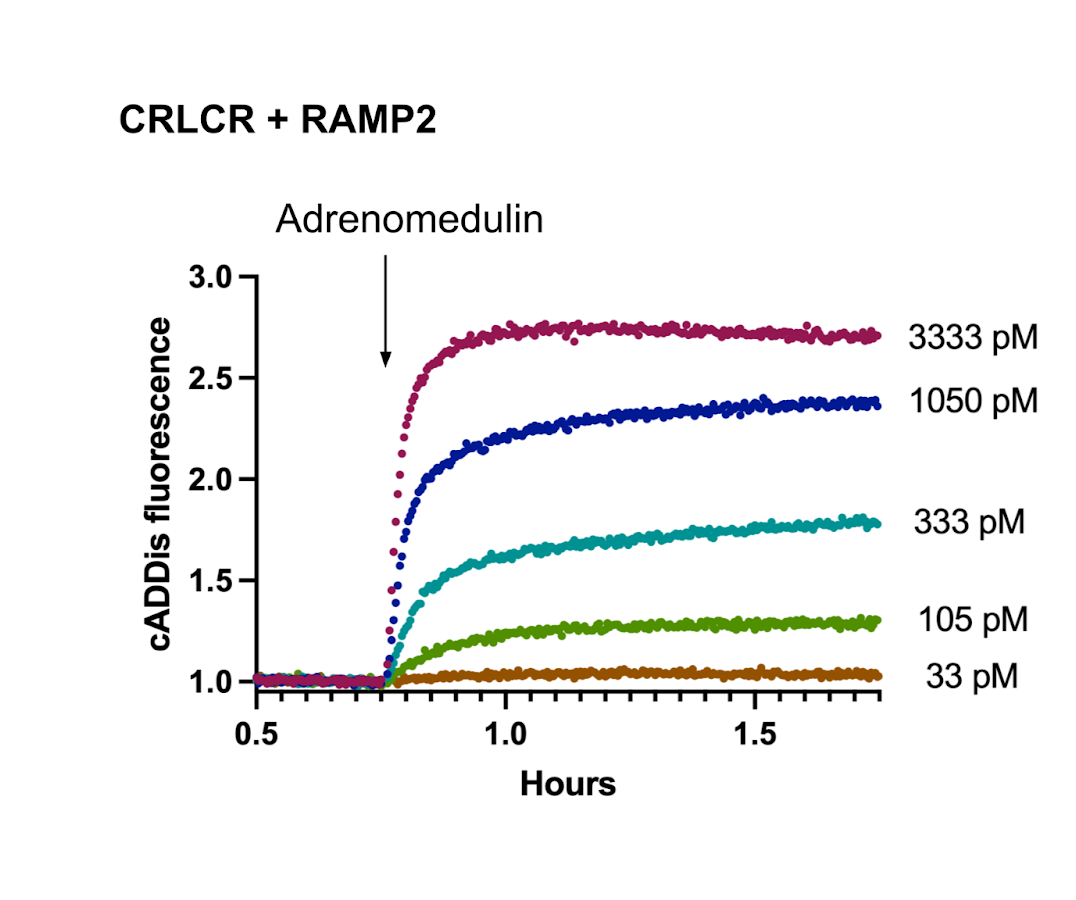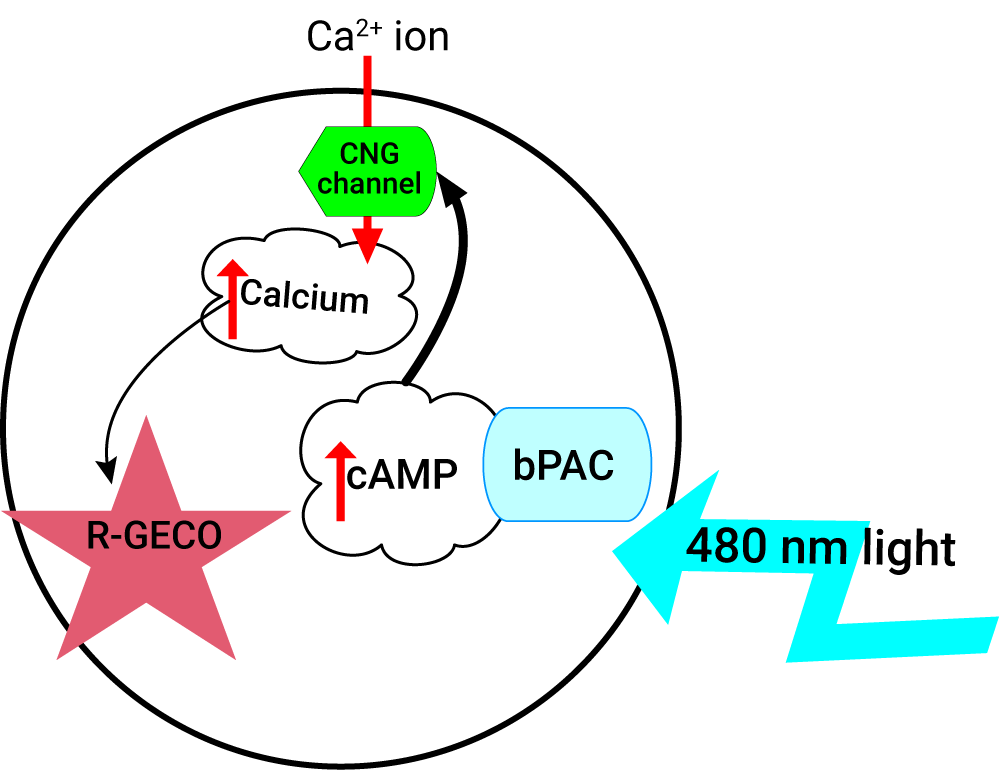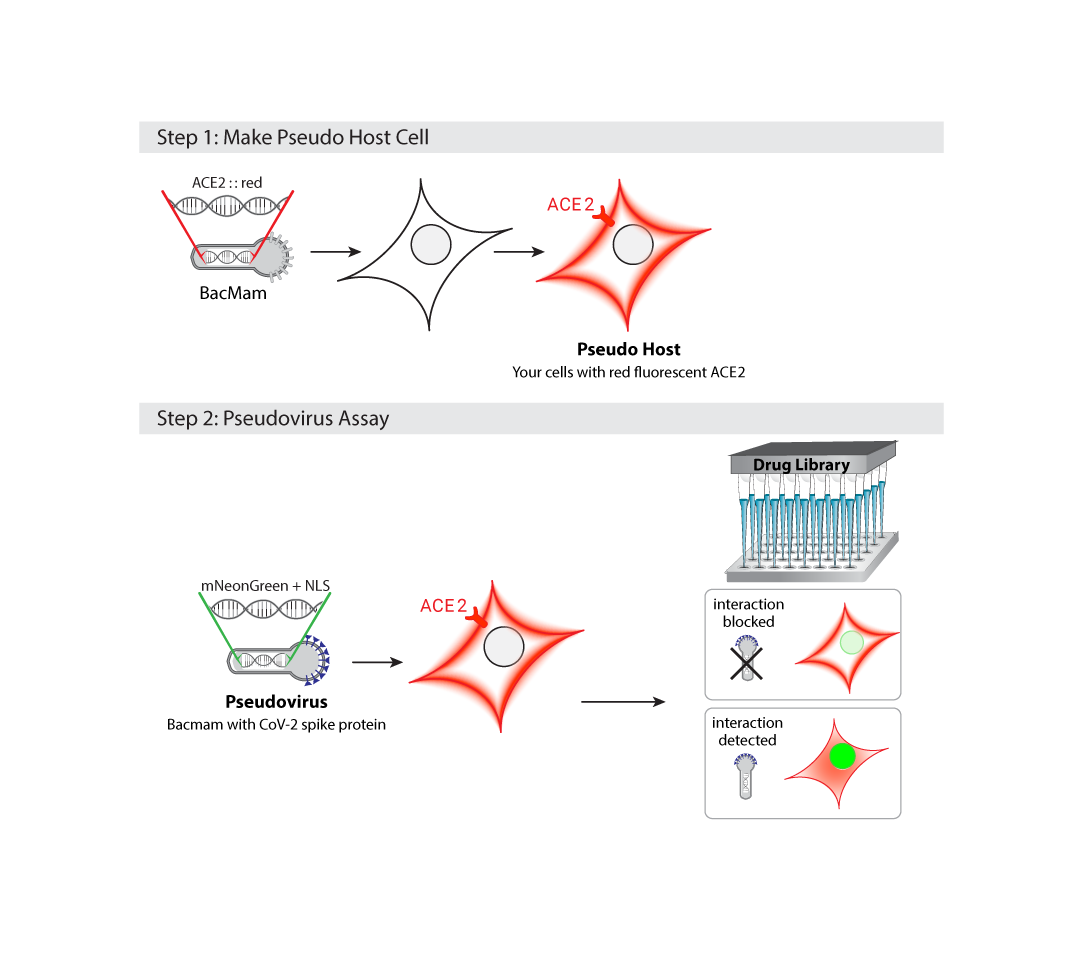BacMam tools
Aside from fluorescent biosensors, Montana Molecular provides targeted fluorescent proteins, SARs-CoV-2 pseudoviruses, and expression vectors for GPCRs, ion channels, and many other drug targets. These tools are packaged in a BacMam viral vector, providing consistent, robust, and titratable expression across standard cell lines, primary cultures, and iPSCs. They can also be easily co-expressed with our suite of fluorescent biosensors, for example to express a GPCR alongside a signaling assay.
GPCRs
A growing suite of over 40 unmodified, native human GPCRs packaged in BacMam. Easily combine with our Gs, Gi, Gq, or Arrestin Recruitment biosensors. Species orthologues, mutations, tags, and other modifications are available on request.
Cell Painting Tools
A suite of fluorescent proteins targeted to subcellular domains, including mitochondria, lysosome, golgi, and cytoskeleton. These tools enable visualization of subcellular structures and cell morphology in the context of drug discovery and disease research. Investigate drug effects, monitor metabolic activities, and identify disease-associated phenotypes with no need to fix, stain, or lyse your cells.
Neurodegenerative Disease-associated proteins
Express wild-type and mutant versions of proteins implicated in neurodegenerative diseases including ALS, Rhetinitis Pigmentosa, Parkinson’s, and Alzheimer’s. These are human, untagged proteins including TDP-43, alpha synuclein, SOD1, Rhodopsin, and FUS.
Pseudo SARS-CoV-2 Viruses
These pseudoviruses are BSL-1 baculoviruses pseudotyped with Spike (S) proteins. This means that biologists and drug discovery teams can work on COVID-19 projects outside of BSL-3 facilities with standard safety procedures. Baculovirus production in Sf9 cells is cost effective with low batch-to-batch variability. Once inside the cell, the pseudovirus does not replicate, but delivers a genetically-encoded, fluorescent reporter that expresses bright green fluorescence in the host cell nucleus.
GPCR Kinases
Human, unmodified GRKs packaged in BacMam. Easily co-express with GPCRs and G-protein signaling biosensors.
Receptor activity-modifying Proteins (RAMPs)
BacMam-packaged human RAMP1, RAMP2, and RAMP3. These proteins can regulate the function and specificity of G-protein-coupled receptors – influencing their trafficking, ligand selectivity, and signaling. BacMam viruses are easily co-transduced, allowing RAMPs to be expressed alongside Montana Molecular’s suite of GPCR signaling assays and expression vectors, including the Calcitonin Receptor-like Receptor (also known as CRLCR, CALCRL, or CRLR).
Optogenetic Toolkit
A suite of ion channels and bPAC enzyme, an adenylyl cyclase that will rapidly create cAMP when stimulated with blue light. Use to optically control cAMP levels in cells or to create optically excitable HEK293 cells.
SARS-CoV-2 Host Proteins
Spike protein on SARS-CoV-2 interacts with the ACE2 receptor on the host cell to initiate viral entry, but other host factors are also involved. Host cell factors that are reported to work with ACE2 in SARS-COV-2 entry are now available in BacMam vectors, including Cathepsin-L, Neuropilin-1, and TMPRSS2. BacMam is a BSL-1 baculovirus that provides safe, efficient and controllable delivery to practically any cell type. Combine with Pseudo SARS-CoV-2 for COVID19 investigation and discovery.

